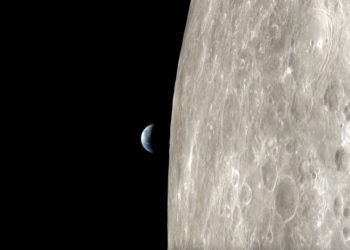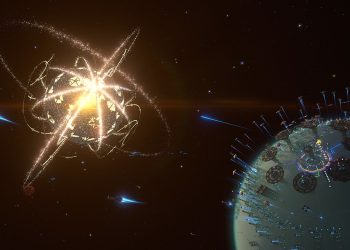For centuries, humanity has sought to understand the cosmos, yet one staggering truth remains: 95% of the universe is a complete enigma. Among the greatest puzzles of modern science is a phenomenon so strange and elusive that it challenges our fundamental understanding of reality—dark energy.
First identified in 1998, dark energy is a mysterious force driving the universe to expand at an accelerating rate. Despite decades of research, scientists are still in the dark about its true nature. But could solving this cosmic riddle unlock a deeper understanding of existence itself?
The late 20th century was a turning point in cosmology. Astronomers studying distant supernovae noticed something unexpected: the universe wasn’t just expanding—it was speeding up. This revelation turned scientific expectations upside down. Previously, researchers assumed that gravity would gradually slow the universe’s growth, but the data told a different story.
For years, skepticism lingered. Teams of scientists meticulously reviewed the evidence, questioning whether errors in calculations might explain the bizarre findings. Ultimately, the results held firm. A new, invisible force was at play, and it was far more influential than anyone had imagined. The discovery earned Saul Perlmutter, Brian Schmidt, and Adam Riess the 2011 Nobel Prize in Physics, cementing dark energy as one of our time’s most significant scientific findings.
Dark Energy: A Force Like No Other
Unlike ordinary matter or even dark matter, dark energy operates in ways that defy intuition. It doesn’t clump together or form structures; instead, it exists uniformly throughout the universe, exerting a repulsive force that stretches the fabric of space itself. This uniform distribution means dark energy is everywhere, affecting the cosmos on a scale unmatched by any other force.
Interestingly, dark energy’s influence hasn’t always been dominant. For billions of years, gravity reigned supreme, pulling galaxies together and slowing cosmic expansion. However, as the universe grew larger, dark energy began to take over, pushing everything apart at an accelerating pace.
Dark energy’s discovery breathed new life into an idea first proposed by Albert Einstein. In the early 20th century, Einstein introduced a “cosmological constant” to his equations, hoping to describe a static universe. When evidence of cosmic expansion emerged, he dismissed the constant as a mistake, famously calling it his greatest blunder.
Decades later, the idea resurfaced as scientists sought to explain dark energy’s role in the accelerating universe. Einstein’s discarded constant turned out to be remarkably accurate, providing a mathematical framework for understanding this mysterious force. Once again, the universe proved to be stranger—and more interconnected—than anyone had predicted.
The Limits of Our Understanding
Despite advances in technology and science, dark energy remains a profound mystery. Some theories suggest it could represent a new fundamental force, while others propose it’s an inherent property of spacetime. There’s speculation about unknown structures in the universe’s fabric influencing this phenomenon. Yet no hypothesis has definitively explained why dark energy exists or how it works.
What is clear is its overwhelming impact. Dark energy accounts for 68% of the universe’s composition, while dark matter adds another 27%. This leaves only 5% for the matter that forms stars, planets, and all observable life. In other words, nearly everything we experience is just a tiny fraction of what’s out there.
The quest to understand dark energy is more than an academic challenge—it’s a journey to uncover the very nature of existence. Scientists are piecing together clues about how dark energy influences the universe’s structure and evolution by studying cosmic microwave background radiation and gravitational lensing.
Every discovery brings us closer to answering the ultimate question: what lies beyond the 5% we understand? For now, dark energy stands as a humbling reminder of how much we have yet to learn about the cosmos. As researchers continue their efforts, the hope is that one day, this elusive force will reveal its secrets, changing our understanding of the universe forever.











